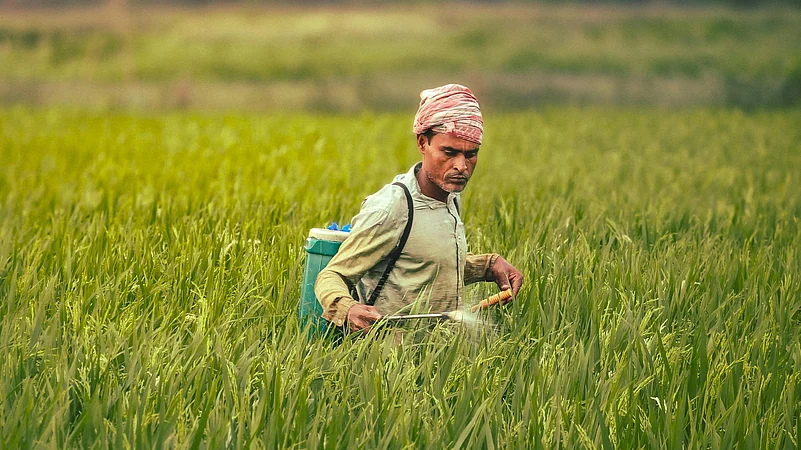
India ranked among Asia-Pacific’s highest-risk nations for agricultural heat vulnerability.
Rising temperatures threaten crop yields, livestock health and farm labour productivity nationwide.
Studies show worsening heatwaves already cutting wheat output and deepening rural distress.
India is among five countries in Asia and the Pacific where the agriculture sector faces consistently “high risk” from rising temperatures, according to the 2025 Asia-Pacific Disaster Report, released on November 26, 2025 by the UN Economic and Social Commission for Asia and the Pacific (ESCAP).
The risks — including reduced crop yields, livestock productivity, labour capacity and deepening rural poverty traps — remained high under both low- and high-emissions scenarios, found. Afghanistan, Pakistan, Nepal and Bangladesh were consistently included in the high-risk category.
Agriculture accounts for more than 25% of the region’s GDP and employs a majority of the rural labour force, contributing significantly to food security, livelihoods and employment. The report further stated that extreme heat is already pushing crops and livestock to “severe stress”, the report warned. In 2022, India’s staple wheat crop withered following unprecedented March heatwaves during a critical late growth stage.
To assess agricultural vulnerability to heat, ESCAP developed an Agricultural Heat Stress Score (AHSS). The metric combines the Warm Spell Duration Index (WSDI) — a measure of consecutive hot days — with the share of agriculture in gross domestic product (GDP), the extent of agricultural employment and the proportion of land under cultivation.
Countries were categorised into moderate, high and extreme-high risk bands based on percentile rankings of their AHSS and WSDI values. Heat stress was analysed across three periods: a historical baseline (1995–2014), and future projections under both low-emissions (SSP1-2.6) and high-emissions (SSP5-8.5) scenarios. Despite lower absolute WSDI values, some Pacific island countries such as Fiji, Papua New Guinea and the Marshall Islands demonstrate moderate to high future exposure.
Under SSP5-8.5 (a scenario in which emissions roughly double by 2050) Myanmar, Fiji, Laos and Uzbekistan exhibited worsening vulnerability under unmitigated emissions. These countries rely heavily on agriculture but have limited adaptive infrastructure or access to adaptation finance.
Rising Heat Threatens Farmers
According to a study conducted in the North Western Plain Zone (NWPZ) and North Eastern Plain Zone during 2021-22 by the Indian Council of Agricultural Research (ICAR)-Indian Institute of Wheat and Barley Research in Karnal, found that in the NWPZ, the maximum temperature rose significantly by 5.5 degrees Celsius when compared to 2020-21, leading to an average yield loss of 5.6% under high temperature stress conditions, the Bhagirath Choudhary, Union minister of state for agriculture and farmers’ welfare, told the Rajya Sabha.
A Wageningen University & Research study revealed that agricultural labour loss in India is already substantial and will further increase in the future as a consequence of climate change. A 2022 report by the Indian Council of Agricultural Research showed that the heatwave had impacted wheat yield and subsequently, a shortage of grain. But it also resulted in poor vegetative and retarded growth, pest infestation like fall army and whitefly attacks and viral infections in crops and livestock, the report titled Heat Wave 2022: Causes, Impacts, and Way Forward for Indian Agriculture stated.





























